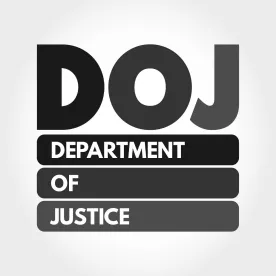Go-To Guide: |
|
On Feb. 3, 2023, the Department of Justice (DOJ) Antitrust Division announced it was withdrawing three antitrust policy statements relating to enforcement in health care markets due to market changes in the last 30 years rendering the prior policy statements “outdated.” The three withdrawn policy statements include the 1993 Department of Justice and FTC Antitrust Enforcement Policy Statements in the Health Care Area, the 1996 Statements of Antitrust Enforcement Policy in Health Care, and the 2011 Statement of Antitrust Enforcement Policy Regarding Accountable Care Organizations Participating in the Medicare Shared Savings Program.
Prior Safe Harbors
First in 1993, the DOJ and the Federal Trade Commission (FTC) jointly issued six policy statements intended to provide hospitals and health care providers with information on when mergers and joint ventures would not violate antitrust laws, in order to provide more certainty to these industry players and in turn lower health care costs.
The policy statements established so-called “antitrust safety zones” describing when the DOJ and FTC would not challenge activity in six areas: 1) hospital mergers (where one of the merging hospitals is small); 2) hospital joint ventures involving high-technology or other expensive medical equipment (reasoning that these ventures provide procompetitive efficiencies that outweigh potential anticompetitive harms); 3) physicians’ provision of information to purchasers of health care services (with a safety zone covering non-price information exchange); 4) hospital participation in exchanges of price and cost information (with a safety zone where the exchange is managed by a third party, the data is more than three months old, and the price or cost data is aggregated with multiple hospitals included); 5) joint purchasing arrangements among health care providers (again reasoning that these arrangements provide procompetitive efficiencies as long as the group’s purchases accounts for less than 35% of the total purchases of the relevant product or service, and the cost of the product or service being jointly purchased accounts for less than 20% of the total revenues from all products or services sold by each participant in the arrangement); and 6) physician network joint ventures (with an antitrust safety zone covering ventures comprising 20% or less of the physicians in each specialty in the relevant geographic market, when the members share substantial financial risk).
In 1994, the antitrust agencies revised and expanded the 1993 statements, adding new statements, and again in 1996, the antitrust agencies issued further revisions reflecting changes in the health care market.
Finally, in 2011 the antitrust agencies issued a policy statement on Antitrust Enforcement Policy Regarding Accountable Care Organizations Participating in the Medicare Shared Savings Program, explaining how the antitrust agencies would enforce antitrust laws with respect to new Accountable Care Organizations (ACOs).
Going Forward
The DOJ will no longer allow industry players to rely on these safe harbors. Firms that have previously relied on these safe harbors will need to re-evaluate their information exchanges with counsel to determine the extent to which they could be “de-anonymized” or otherwise engineered to allow for the exchanging firms to coordinate to raise prices or rates or suppress wages (regardless of the benign intentions of the information exchange). In prepared remarks Feb. 2, DOJ Antitrust Division Principal Deputy Assistant Attorney General Doha Mekki stated that suggestions that historical and/or aggregated data are unlikely to be competitively sensitive – suggestions that supported the withdrawn safe harbors – are “undermined by the rise of data aggregation, machine learning, and pricing algorithms that can increase the competitive value of historical data for some products or services” and “glean insights about the strategies of a competitor.”
The DOJ has signaled no intention to replace these withdrawn statements. In order to advise clients, counsel will need to rely on recent enforcement actions. Instead of broad safe harbors going forward, the DOJ will evaluate these topics on a case-by-case enforcement approach designed to allow for a more thorough scrutiny of transactions and arrangements in health care markets that may harm competition.



 />i
/>i
